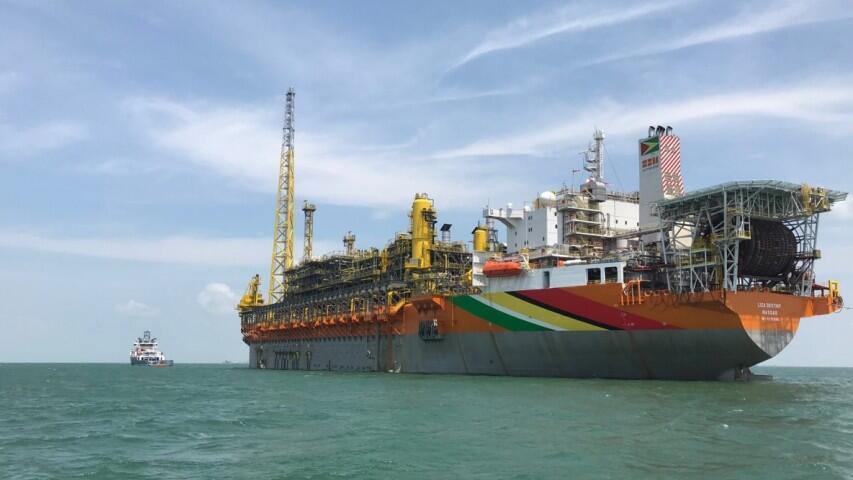
In hottest year on record, UN Climate Conference held amid shadow of Gaza war
At what is expected to be the largest-ever climate conference, attention will be focused on the regional crisis and on the fact that the host, the UAE, will be promoting extensive cooperation with oil and gas companies.
The annual United Nations Climate Change Conference will open tomorrow in Dubai. With over 70,000 people from around the world expected to attend, it is anticipated to be the largest climate conference yet. President Joe Biden will not be attending and the Israeli delegation will be significantly reduced due to Israel’s ongoing war with Hamas. While the window of time to address climate change is shrinking, there is growing concern worldwide that another escalation in the Middle East will affect countries' willingness to invest in solutions and shift attention away from the war. This comes amid efforts by the conference host, the United Arab Emirates, to close several oil and gas deals.
The conference is taking place precisely during the hottest year on record, a year that provided a disturbing glimpse of the impact of extreme climate events globally. It further underscored the failure of world leaders to address climate change, which has manifested in deadly heat waves, fires, floods, mass migration, water scarcity, growing threats to food production, and enormous economic damage.
According to new research from the University of Victoria in New Zealand, the financial costs caused by extreme weather events amounted to $16 million per hour in the last two decades. Thirty percent of the costs resulted from the loss of human life, while another third came from the destruction of property and other assets. The planet is already 1.2 degrees Celsius warmer compared to the pre-industrial era, and every fraction of a degree increases the risk of more extreme climate events.
Related articles:
- OECD report: countries not meeting climate goals, Israel at especially high risk
- Dubai Climate Conference: Israeli delegation will be significantly reduced, PM and ministers will not attend
- "When Greta addresses the Israel-Hamas war superficially and dismissively, it inevitably weakens the validity of her climate-related positions"
As part of the 2015 Paris Agreement, almost 200 countries agreed to take action to prevent a temperature increase of more than 1.5-2 degrees - a threshold that, if breached, would destabilize many ecosystems. Halting global warming requires a 42% reduction in greenhouse gas emissions by the end of the decade, primarily through significantly reducing the use of coal, oil, and gas. Their combustion is the main source of greenhouse gas emissions. However, achieving this goal is challenging. At the current reduction rate, Earth may cross the dangerous threshold of a 3-degree Celsius temperature increase by the end of the century.
An oil and gas-based economy
The 196 signatories to the 2015 Paris Climate Accords will convene at a conference on progress in the field. However, given the magnitude of the challenge, expectations aren’t high. For years, countries have been called upon to address the core issue of using fossil fuels (coal, oil, and gas). Last year, 80 countries hoped to pass a resolution for a gradual halt to their use, but the proposals were thwarted by several countries, including China and Saudi Arabia. This year, the chances of such a decision are particularly low, mainly due to the hosts. The president of the conference is Sultan Al Jaber, CEO of the National Oil Company of the United Arab Emirates (ENOC) and this week it was revealed that the UAE plans to leverage its hosting role to close oil and gas deals with 15 participating countries.
The UAE’s economy is based on oil and gas, and staunchly opposes combatant rhetoric regarding fossil fuels. It argues that coal, oil, and natural gas must play a continuous role in humanity's future. According to new data, ENOC has the world's largest expansion plans in the field and has actively sought partnerships this year in climate talks with managers and lobbyists of oil and gas companies.
The decision to hold the conference in Dubai and appoint Al Jaber as president, who promoted the inclusion of oil industry representatives in the talks, is seen by many as a conflict of interests. Former U.S. Vice President Al Gore, a veteran climate activist, stated that the interests of fossil fuel companies "have taken over the UN climate process." This comes at a time when the International Energy Agency clarified that climate goals will not be achieved if new oil and gas fields are opened after 2023.
Oil industry profits soar
The International Energy Agency reported last month that the "beginning of the end of the era of fossil fuels" may be near, as demand for oil, natural gas, and coal is expected to peak by the end of the decade. However, for now, profits in the oil industry are soaring, and production is increasing, so, in an era of ambitious green agendas, oil producers are ironically thriving. Some even canceled their “green energy” plans this year and withdrew from commitments to reduce greenhouse gas emissions.
Ninety-six percent of companies developing new fields are continuing to do so, and over 1,000 companies plan to lay gas pipelines and build power stations powered by gas or exported liquefied natural gas (LNG). Despite their involvement in climate policy discussions, oil and gas producers contribute only 1% to global investment in clean energy, barely 2.5% of their expenditures.
Alongside rhetoric about reducing the use of harmful fuels, the conference is expected to focus on a commitment to triple the share of renewable energy by the end of the decade and promote the "loss and damage fund," included in the 2022 agreement. The fund is supposed to help transfer funds from wealthy countries, which are primarily responsible for global warming, to poorer countries severely affected by the climate crisis.
Fears of anti-Israel protests
Israel was preparing to bring its largest-ever delegation to the climate conference, including Prime Minister Benjamin Netanyahu, President Isaac Herzog, and about 13 ministers. However, the 7/10 massacre and war with Hamas disrupted those plans. Consequently, Israel will set up a small booth and send around 30 participants, mainly from the Ministries of Environmental Protection, Foreign Affairs, and Energy, accompanied by heavy security due to the current situation. President Herzog, expected to deliver a speech on Friday, will use the platform to conduct diplomatic meetings.
Public demonstrations are banned in the UAE, but they announced that focused protests on environmental issues in a limited manner would be permitted. This has raised concerns about potential protests against Israel at the conference, focusing on environmental damages in Gaza, including damage to water infrastructure and the intergenerational implications of widespread destruction.
Representatives from Israel and the Palestinian territories are expected to deliver speeches, but meaningful climate cooperation in the region will be affected by the war. The Jordanian Foreign Minister announced that, due to the conflict in Gaza, his country will not sign an extension this year for continued cooperation on Project Prosperity. Under this project, Israel would increase water supply to Jordan and purchase green electricity from a giant solar field, contributing to the economic development of Jordan through concessional financing. The Prosperity project was defined last year as an example of how environmentally friendly policies could lead to a better future in the Middle East. Now there are concerns that the geopolitical situation in the region will hinder further cooperation needed to address regional warming, posing numerous challenges.
Globally, there is also concern about the funding of climate initiatives in the shadow of war. The International Monetary Fund warned that if the conflict in the Middle East continues or intensifies, it could have a negative impact on the global economy. The outcome may undermine the availability of funds for climate change warfare and affect the willingness of wealthy countries to fund climate agreements, according to which they are obligated to help poorer countries adapt to the crisis.















